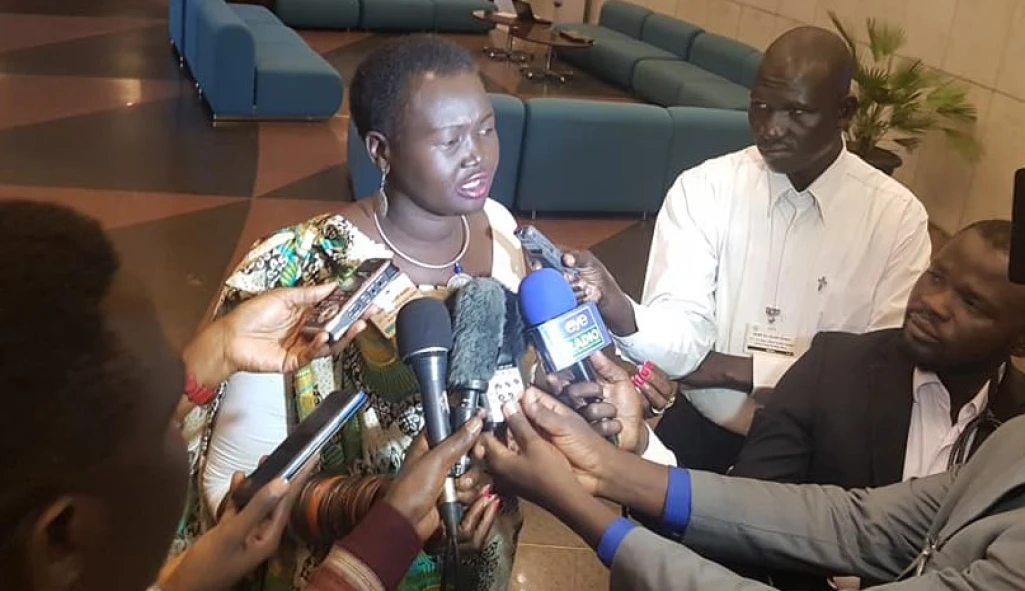
A women’s rights activist has called on South Sudan leaders to fix the country, organize elections, and stop pulling the rope over the power.
The women bloc of South Sudan said they are worried over the slow implementation of the peace agreement and tight timeline for a transitional period.
Amer Manyok is the Executive Director of Women Bloc of South Sudan. She said the country is expected to hold a general election next year. However, several provisions in the agreement remain outstanding or in dispute. She urged the parties to implement these, such as the graduation of forces, the reconciliation process, and the repatriation of refugees.
Manyok said the time is ticking. Saying the agreement would soon elope, and any further delay in not having an election will make the government illegitimate. “The government should utilize this little time to graduate the forces which have been in the barracks for so long,” she emphasized.
Last week, the military spokesperson Gen. Lul Ruai Koang said they completed screening and the reorganization of unified forces in Bahr El Ghazal and the Upper Nile region.
They expect to complete the same exercise in the Equatoria region this week. The unity government promised to have the first 53,000 unified troops graduate early this year.
Manyok said the civil society is not ready for the extension or any move to revitalize the agreement once the transitional period ends.
” The future of South Sudan is in the hand of our people because they have the right to remind our leaders to unite our country,” she added.
She warned about the limited time to reconcile the people. She called on the government to implement accountability stated in the peace agreement by forming a Hybrid Court for South Sudan to trial those who committed crimes during the conflict.
The 2018 revitalized peace agreement demands the unification of forces before the country hold election. The parties to graduate 83,000 unified troops drawn from the various signatories to the agreement and take charge of security during the ongoing transitional period.